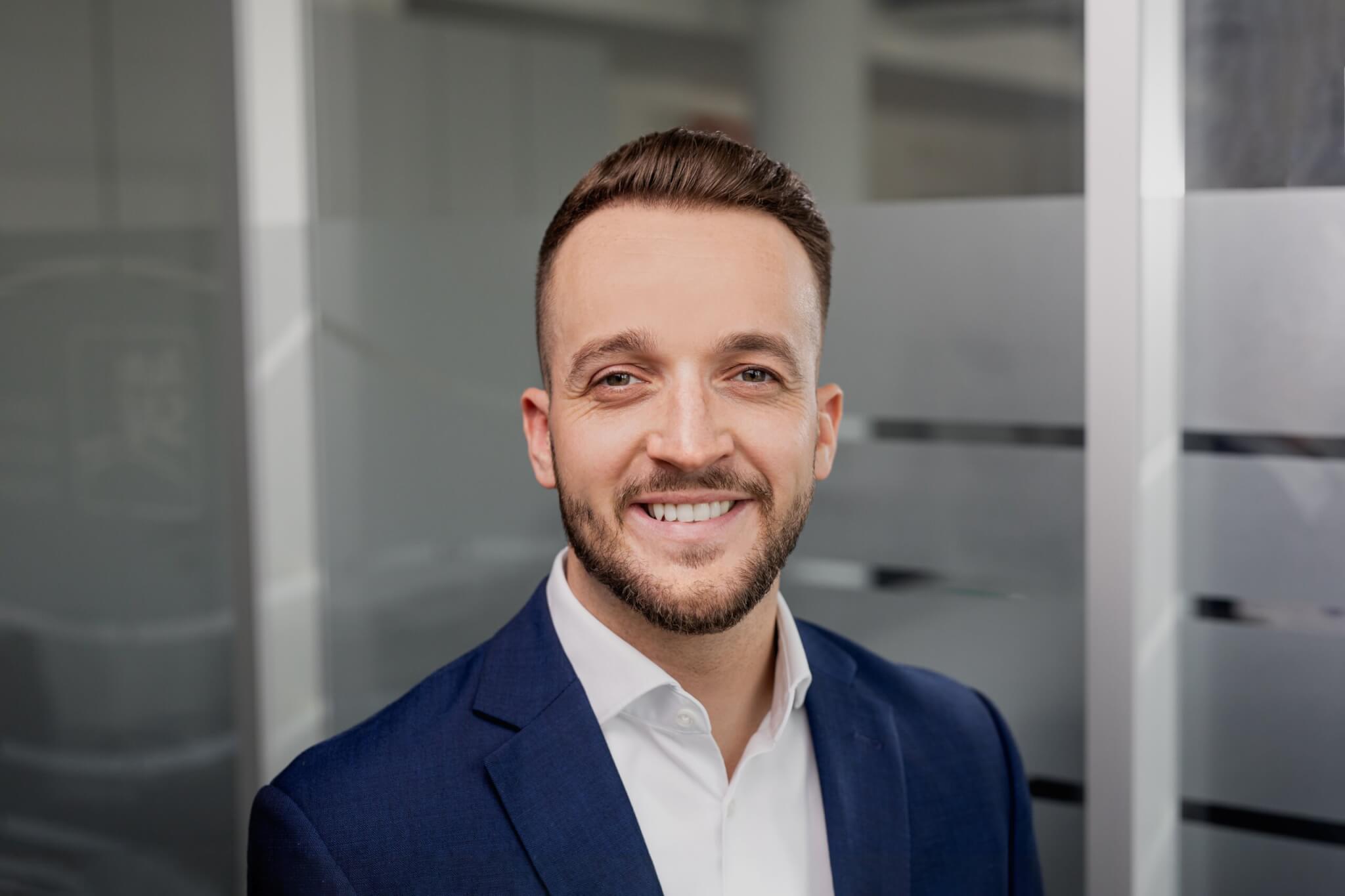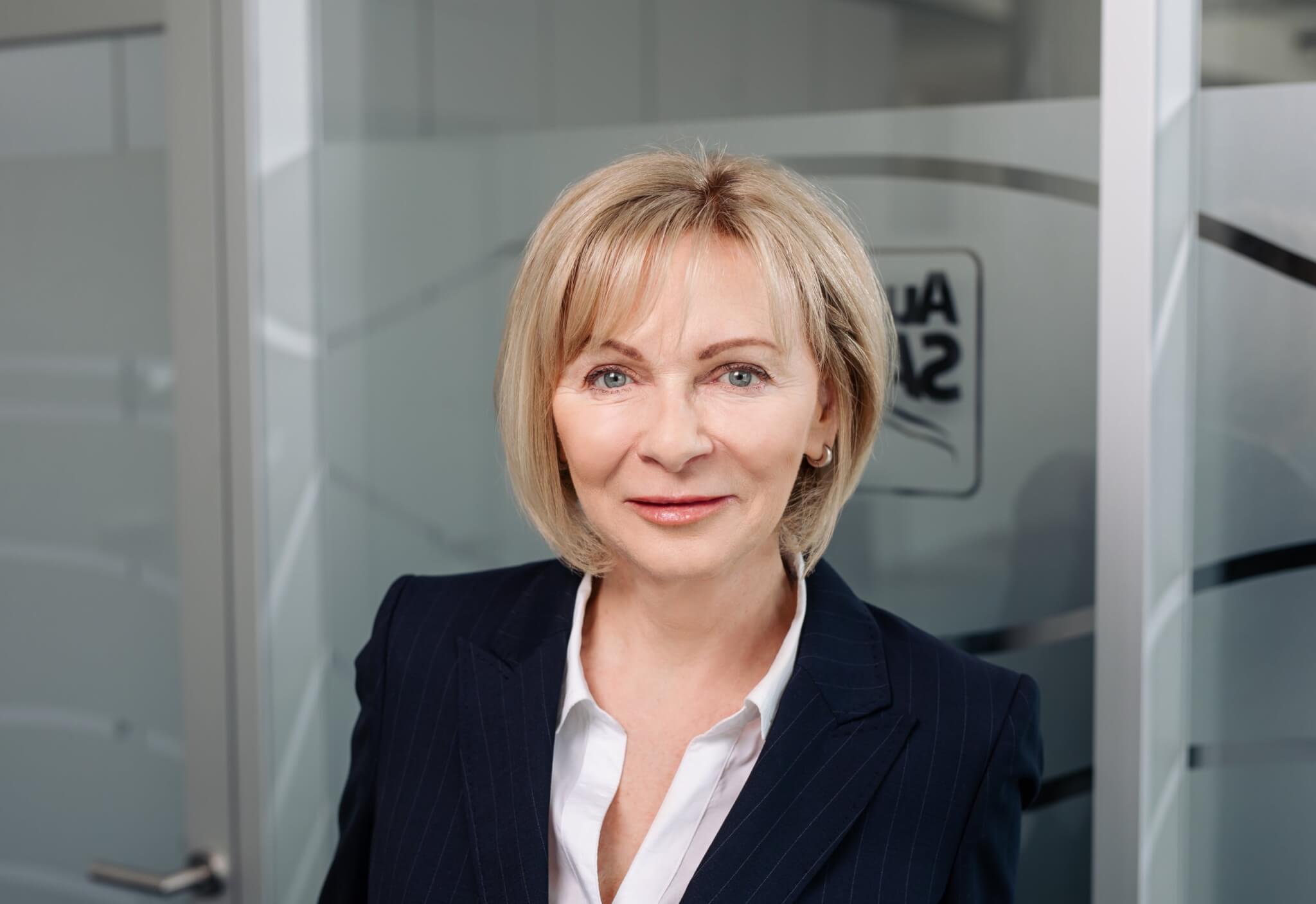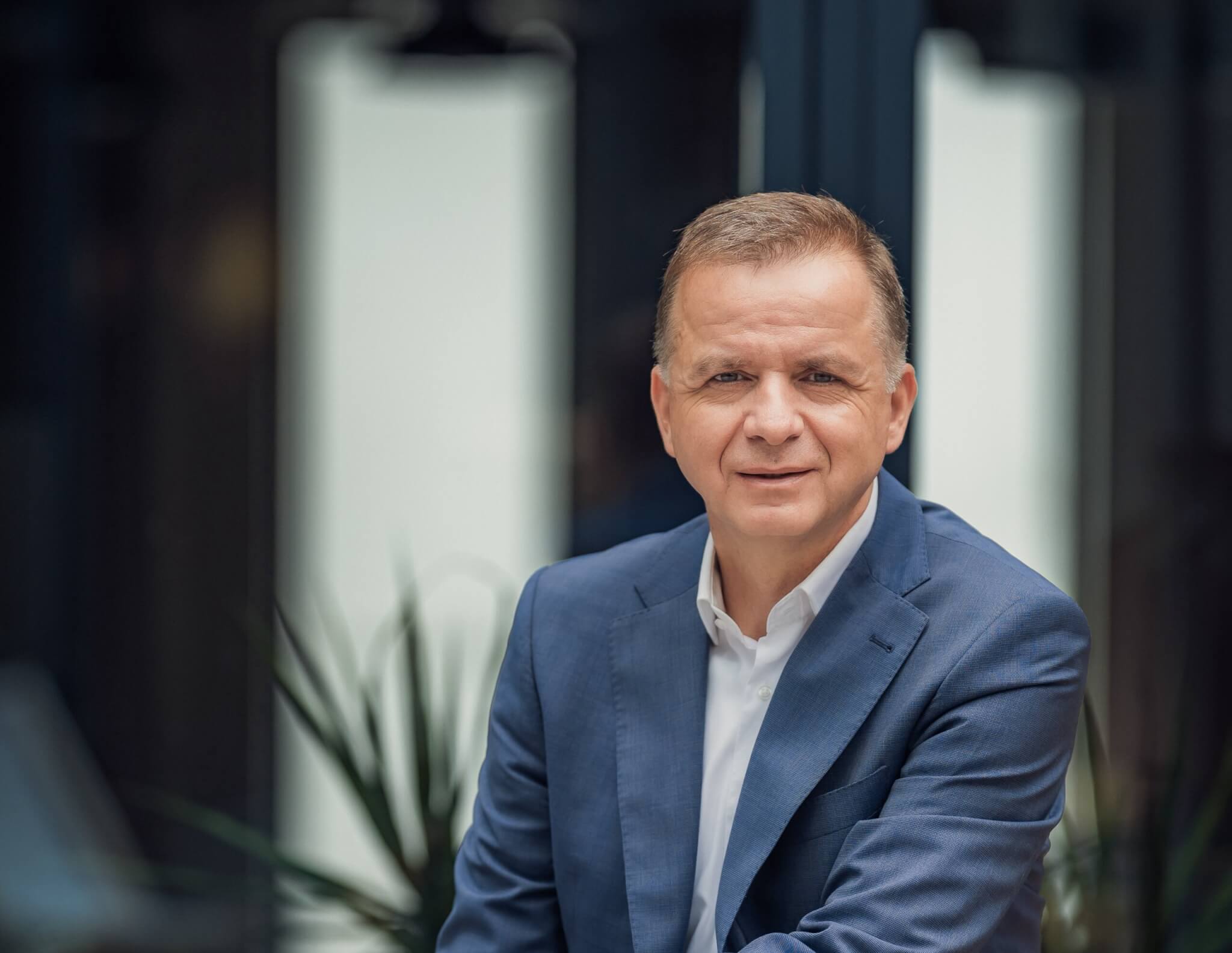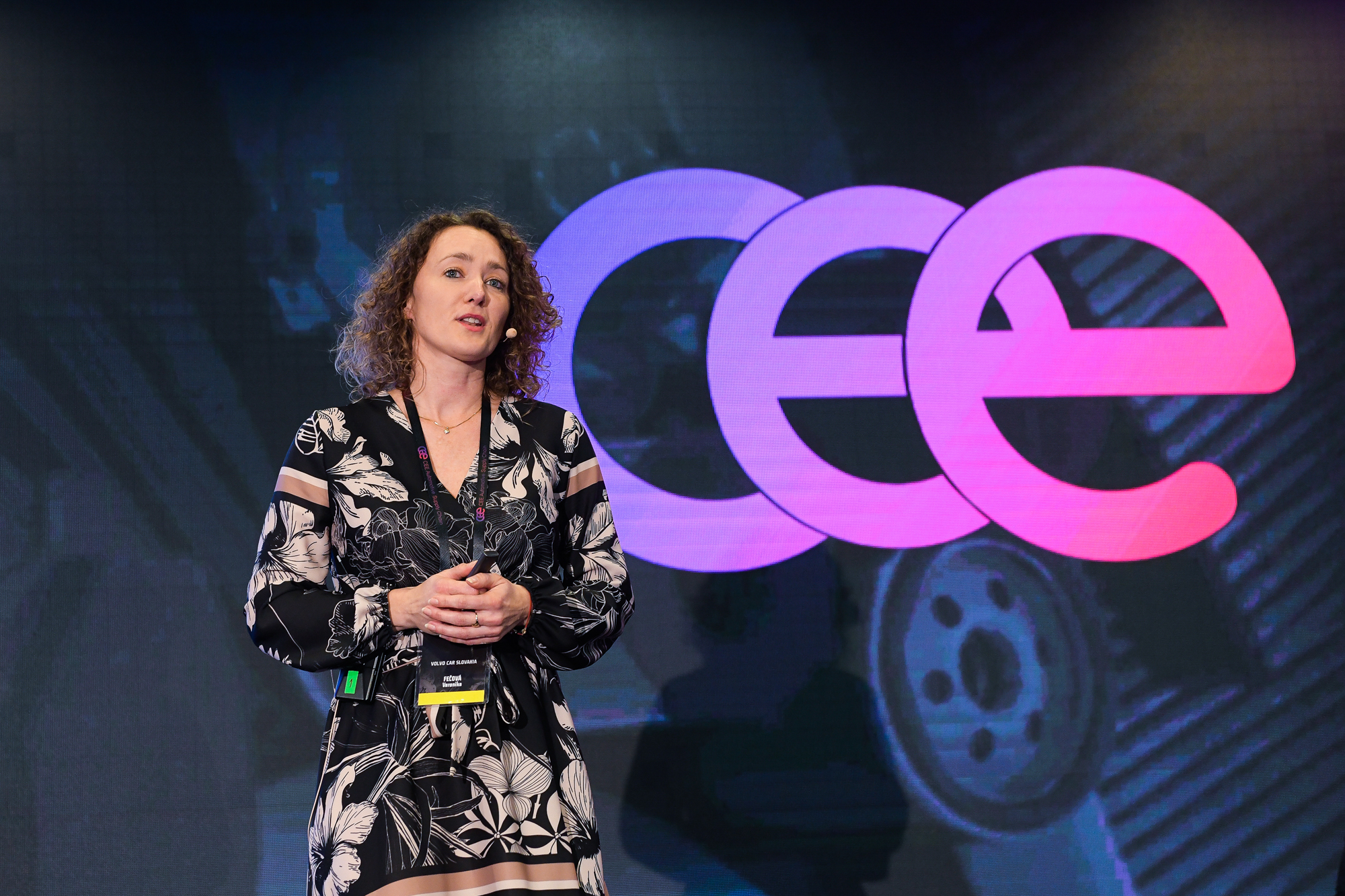What does a company look like in the middle of a generational change? Pavel Juříček, Chairman of the Board of Brano Group, is gradually handing over the holding to his son. Václav is now fully responsible for, among other things, the overall holding development, sales, the plant in China and the development of new markets, including the USA. What are the father and son’s ideas for the further development of the company and how do they assess the current situation in the automotive sector, which is key for the company?
Getting father Pavel and son Václav Juříček together at the same table was not easy. Their diaries are full from morning to night, here interspersed with trips to China and the USA. Giving interviews is not one of their priorities. But they did.
Sustainability as a foundation
The interview at the Brano Group headquarters in Hradec nad Moravicí does not have a fixed structure, so we start with what Pavel Juříček has on his desk. Coincidentally, his “favourite” topic is ESG, environmental, social and governance, responsibility and sustainability.
“Incorporating sustainability-related performance into the incentive system. Due diligence, risk management and internal control statements on sustainability reporting. Characteristics of non-employees within the company’s own workforce. Procedures for correcting negative impacts and channels for consumers and end users to raise concerns,” Pavel Juriček quotes from the material in front of him, shaking his head.
It is a primer on ESRS (European Sustainability Reporting Directive), the mandatory EU standards to which companies must adapt their ESG reporting. “I have to complete this by the end of the year, I have to write some essays for each point, then the auditor has to approve it,” Juříček senior says. “And then there’s another section where they fill in what the carbon footprint of this or that part or product is.” The resulting report is primarily for customers who require it, as they too must comply with EU legislation. Failure to comply could result in Brano not being included in tenders for new contracts.
The head of the Brano Group hopes that the resistance of companies and the pressure coming from the US will lead to some kind of simplification of these things in Europe, including the whole Green Deal. He sees ESG as one of the reasons for the declining competitiveness of companies in Europe from the very first moment.
Václav Juříček is more conciliatory in this respect: “I think the existence of a multinational initiative to make sure that companies behave sustainably and minimise their carbon footprint is fine. What form that will take is debatable. As a representative of an employer, I see that the new rules are affecting the economic situation in Europe and that this is putting companies at some risk, but from a human perspective I see that the emphasis on ecology is necessary. So I have a kind of internal conflict within myself.”
Changing generations
The view of ESG compliance is not the only thing that sets Pavel and Václav apart. However, the time has come for a generational shift and so far it looks like the son will follow in his father’s footsteps, although perhaps in his own way.
Pavel Juříček is not a founding father in the true sense of the word, he has owned the Brano company since the 1990s, but the original factory for the production of small hardware goods was founded more than 160 years ago. In thirty years, the new owner has built a holding company from a small enterprise into a number of production and business units with operations on several continents and a customer portfolio that includes all the major automotive companies.
Pavel Juříček announced his intention to transfer part of the responsibility to his descendants several years ago, and last year this intention began to take concrete form. However, as they say, they are going the way of gradual steps. Pavel remains Chairman of the Board and CEO of the entire Brano Group, while Václav is a member of the Board and Technical Director. As far as the individual companies in the structure are concerned, they have divided them up “who is closer to what”. Václav is, of course, in charge of IT and all development. In addition, he is a managing director in several other companies. The production of lifting mechanisms or, for example, the SBU Commercial Vehicles hardening plant, Profsvar and other subsidiaries are still managed by Pavel, who also oversees all the finances in the group.
Václav has been preparing himself for the management for many years and has been working in the company since 2011, after he finished his studies at the Brno University of Technology. He consults his father on many things, but as the head of Brano Group says: “Václav is growing in confidence and some of my advice is no longer to his liking.”
China is strengthening
The Brano Group employs more than 1,800 people and will achieve a turnover of CZK 6.3 billion in 2024. The 13 production plants in Hradec nad Moravicí, Nový Bor, Mnichovo Hradiště, Jilemnice, Litovel, Olomouc and Zubří produce door and fifth door systems, bonnet systems, seat systems, charging and fuel modules, pedal systems, towing devices, car jacks and some components for commercial vehicles. They are supplied to most automotive companies around the world.
“In China, Brano has a full-fledged development department in addition to production.”
In addition to domestic production, Brano is increasingly focusing on production abroad, specifically in China and, prospectively, in the United States. The Chinese company in Taicang was founded by Pavel, but now Václav is fully in charge. He spent two years there and still goes there a couple of times a year – even though he has managed to hire an excellent management team.
“In China we have built a green field with a production area of 10,000 m2, the largest in the group. At the moment we employ 150 people there and have sales of around 700 million crowns, which is more than 12 percent of the group’s sales. Production is primarily focused on locking systems and accessories for doors, bonnets and seats. Production is exclusively for the local market, either for our global customers operating in China or for local OEMS, who already account for almost half of sales here. We expect significant growth here in the coming years, with the plant capacity now about 30 percent utilised. Logically, the importance of this market is growing significantly,” says Václav Juříček.
Brano also has a development department in China, a full-fledged team of only Chinese employees. The local R&D department, which also has a very modern laboratory, plans to expand to 20 employees this year. “Our local Chinese team is growing incredibly in terms of know-how, so they are gaining more and more autonomy,” says Václav Juříček.
To Tesla in America
Production is yet to start in Georgia, USA. The 2,000m2 hall where production will begin, which Brano will lease, is already under construction. The company has already signed a Letter of Intent with a local related Czech company. The process of establishing a new Brano company in the USA is now underway. Pavel Juříček expects that all administrative processes should be completed by the beginning of April.
“We are currently preparing the first production lines that we will allocate from there. We will assemble the lines that we are automating here, test them and then move them,” explains Václav Juříček, adding: “Initially, the assembly of our products should take place in Georgia, but at the moment we are thinking about the locking systems, especially the seats, and then the components for the door systems.” Other projects could be moved there in the future. The main customers for this production will be Tesla, MAGNA and talks are also underway with General Motors.
“At Bran, the first production lines are already being prepared and will be moved to the US, where preparations are underway.”
Pavel Juříček often compares electricity prices in the Czech Republic and the USA and points to the great competitive advantage of the United States. However, energy prices were only one factor in the decision to start production in America. “Tesla is a long-standing customer for whom we also manufacture in China and from the Czech Republic we supply its plants in Berlin and Austin, but it is logical that we should be closer to its American production,” explains the head of the Brano Group.
A difficult year
Starting production in America and further development in China are the main tasks they want to focus on now.
Last year was a relatively successful one for Brano, as Pavel Juříček says, “despite the price of energy, which is the highest in the world, and constant regulation by the government and the EU”. He sees the lack of technical staff as another problem. All these limiting factors will continue to be at work this year.
Even in the first few months of the year, Bran had to face a harsh reality when one of its customers, Stellantis, reduced its recalls for February by 40 percent and for March and April by 15 percent, virtually day by day. At that point, they need to immediately cancel the recalls towards their suppliers and start planning where to move the people who won’t have work to do. “We’re pretty used to this happening, but it wasn’t this bad even during the financial crisis in 2009 and 2010,” says the longtime manager.
“This year’s budget was based, I would say, on realistic pessimism. Looking at how the car companies are doing, or rather not doing, we expect this year to be worse than last year,” predicts Pavel Juříček. Václav slightly contradicts him, “I would not be so pessimistic. The automotive industry is not doing well, but we are not going down with sales as much as the whole sector. We have reasonable profitability and growth is being transferred to our subsidiaries and new markets. In the automotive supplier business, I think the key will be just to get more global opportunities.”
Václav Juříček eases concerns about this year by pointing to higher value-added projects. “We are working with customers on major projects in all strategic areas, whether on door systems, cockpit systems or accessories, primarily towing devices. These products are aimed at the global market. I think this year will also bring some very interesting acquisitions.”
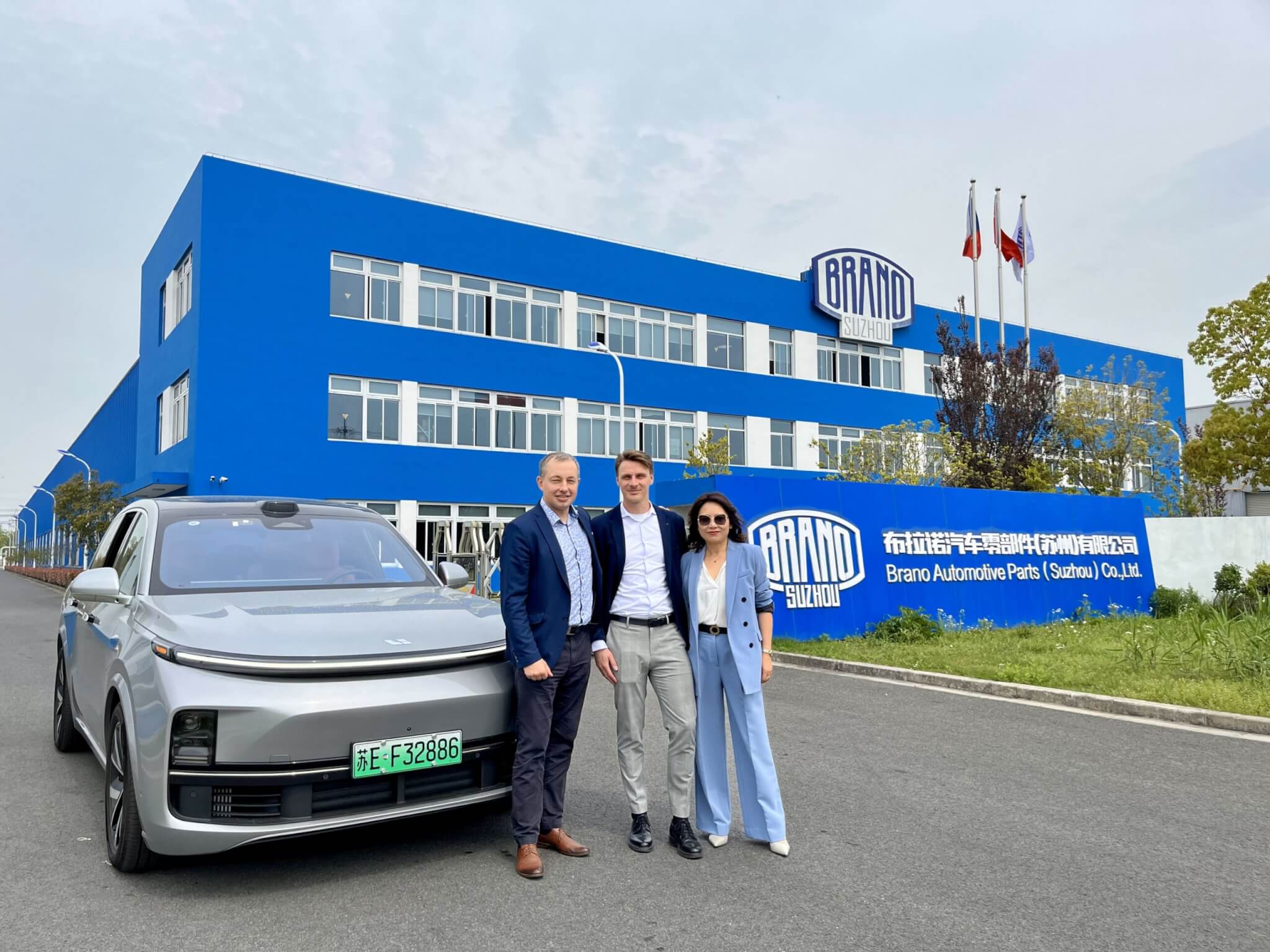
Brano Automotive Parts in Taicang, from left, Brano Group Purchasing Director Petr Škrobánek, Václav Juříček and Brano China CEO Eva Xia. | Photo: Brano Group
Open door
The older generation still has it under their skin: the Brano closes itself. For the beginning of the last century, a clever system that closed the door by itself. You won’t find the iconic door closer in Brano anymore. Today’s production is 99 percent automotive-oriented. The product range is broad and consists of complex products including electronics and mechatronics components.
“For example, we supply soft closing systems for the fifth door, fifth door controls with reversing camera, pedal systems including brake cylinders and accelerator. Some applications are delivered in the form of JIS (just in sequence, stable delivery in the right quantity at the right time directly to the line – ed.), which also requires considerable know-how in terms of IT and logistics. Part of the added value is thus also the service that is associated with the product,” Václav Juříček gives examples.
As the new CTO, he started with the strategy of “Opening the door to the future”, which is a far cry from the slogan “Brano closes itself”, although the origin of both is the same. “We are trying to open the door to the future, not only in terms of our products, where we are literally opening the doors of today’s vehicles, but also in terms of our approach to business and development. That’s why it is extremely important for us to share best-practice and know-how from other markets, such as China, which can now be seen to some extent as a model in terms of innovation in the transport market in general,” explains Juříček Jr.
Its development departments, both in Hradec nad Moravicí and in China, are of great importance to the company. Another centre is being prepared for opening in Ostrava, next to the Mining University.
The future of automotive
Although both Pavel (more) and Václav (less) admit that the European automotive industry is in serious trouble, they do not consider the idea of switching the company to another production. Not that they are not discussing it. “You know, it’s such a runaway train. You’re driving, you’re connecting or disconnecting cars or upgrading cars, but you can’t leave the train. Neither technologically nor mentally,” says Pavel Juříček, describing his attitude. He says that they have started to develop certain projects in the healthcare sector, but not under the roof of Brana.
“For example, we discussed aviation,” adds Václav. “Producing for the automotive industry elevates you to great professionalism and teaches you high quality, so such a move is definitely possible. But replacing six billion in business at once with another industry would be a long run,” Václav adds.
“And I believe in the automotive industry, even though it may take a different form. We already have nominations for Tesla robotaxis. Or more of our production will go into commercial vehicles – we already supply Man, Scania, DAV, Iveco and other brands. Such logistics will still be needed, drones won’t start transporting everything right away,” says Václav Juříček.
Get down, will you?
Neither of the Juříček is worried about the future of Brano.
They will surely quarrel many times before Pavel completely hands over the company to Václav. Perhaps over the management style of the company in general. Pavel is the type of manager who has to control everything in detail. Every morning he goes around the plant to see for himself how everything is running. He follows the motto that a good manager looks underneath with one eye and looks into the distance with the other.
Václav doesn’t do that, he’s used to delegating.
“I think it’s a generational thing. The previous generation tended to micromanage. I see it differently. I think people don’t want to make mistakes and cause problems on purpose. I want to give them the space to realise themselves and find meaning in their work,” Juříček Jr. concludes.
Contact
Next articles and interviews
Next articles and interviews
+ Show


